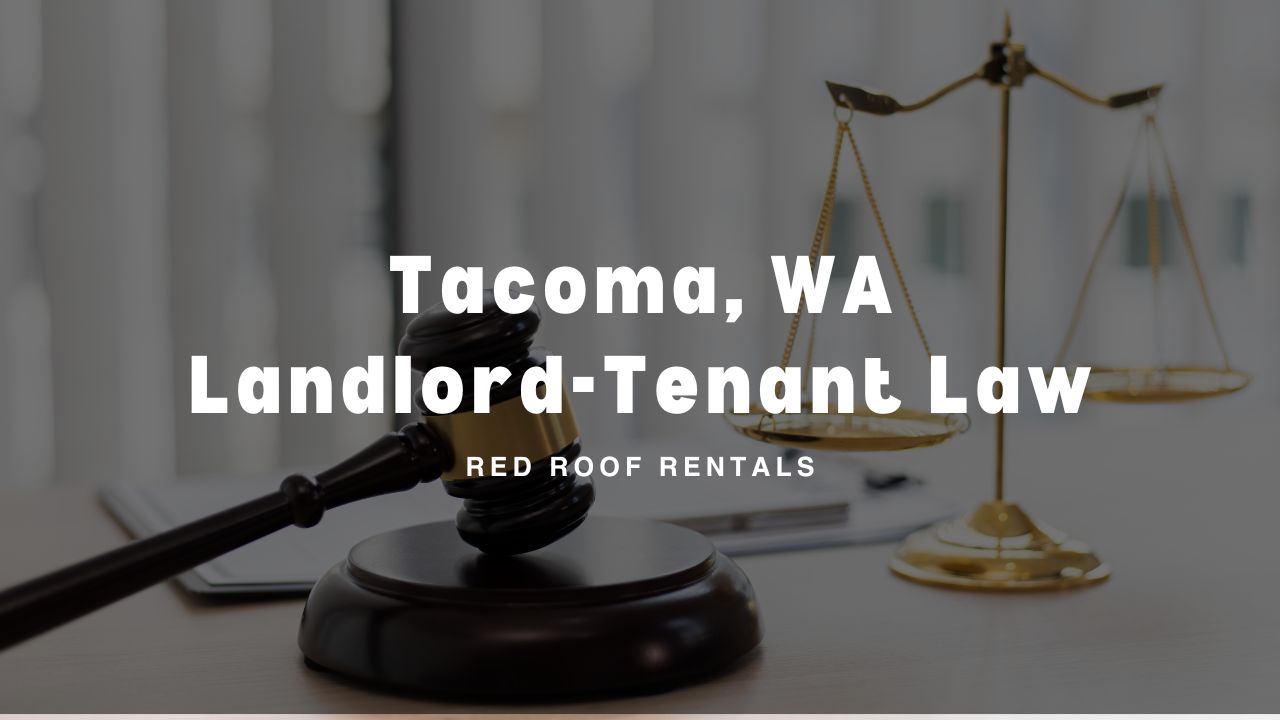To ensure a successful real estate endeavor, landlords must familiarize themselves with the Washington State laws. These laws ensure the protection of both your and your tenant’s rights. In this blog, we’ll walk you through all the important highlights of the laws in Washington State.
Required Landlord Disclosures
You must provide the tenant with the following information before they can move into your residential unit:
- Disclosure about the use of lead-based paint on the premises. This is especially required for buildings built before 1978.
- Your contact information, including your address and phone number.
- Information about fire safety and protection.
- Information about mold and how the tenant can prevent it.
- The collection and handling of the tenant’s deposit including.
- Information about any nonrefundable fees the tenant will be liable for paying.
Tenants’ Rights & Responsibilities
Tenants enjoy the following rights under. A right to:
- Terminate their periodic tenancy after serving the appropriate advance notice.
- Remain in their rented premises until the landlord acquires a court order to evict them.
- Live in a habitable home, and have requested repairs done on time.
- Be provided with the disclosures mentioned above.
- Live in privacy without unnecessary disturbance.
- Get a refund of the deposit within 30 days after moving out.
- Get proper written notice before the landlord affects a monthly rent raise.
- Be treated fairly per the state’s Fair Housing laws.
- Be provided with a proper notice before a landlord can access their rented premises.

As for the tenant’s responsibilities, they include the following:
- Maintain their residential rental unit in a clean, sanitary, and habitable condition.
- Make repairs to damages or cover the costs they are responsible for.
- Maintain the smoke detector as per the lease.
- Use the provided facilities and amenities for their intended purposes.
- Not cause in negligent property damage exceeding wear and tear.
- Not engage in any illegal activities while on the rented unit.
- Abide by all terms of the lease agreement.
- Report repair and maintenance issues to the landlord promptly.
Landlords’ Rights & Responsibilities
The following are some of the rights that landlords have under the Residential landlord-tenant Act. A right to:
- Evict tenants who violate the terms of their lease or rental agreement, such as causing damage exceeding normal wear and tear.
- Require new tenants to pay a deposit before moving in.
- Draft a proper lease or rental agreement and enforce it where necessary.
- Terminate a periodic written rental agreement after notifying the tenant at least 20 days beforehand.
- Raise the rent, and as often and by as much as you choose.
- Enter a rented unit to perform crucial duties.
- Screen prospective tenants to ensure they meet certain criteria. The criteria must be fair and consistent among all applicants.

When it comes to the responsibilities landlords have, they include the following:
- Provide tenants with the aforementioned disclosures before allowing them to sign the lease.
- Make a reasonable effort to re-rent a unit that a tenant has left vacant without a legally justifiable reason.
- Return the security deposit, or whatever portion remains, to the tenant within 30 days of moving out.
- Treat all tenants fairly regardless of their race, color, nationality, religion, or any other Fair-Housing-protected class.
- Notify the tenant before entering their rental unit.
- Not retaliate against the tenant for exercising a legal right, such as notifying the authorities of a health violation.
An Overview of Washington Landlord-Tenant Law
The following is a general overview of Washington’s laws:
Security Deposits
As a landlord, you have a right to require tenants to pay a security deposit. But in so doing, you must observe certain rules for legal compliance including:
- Documenting the unit’s move-in condition. This checklist will act as a point of reference during the final walkthrough to help you note any damage the tenant may be responsible for fixing.
- Making allowable deductions from the security deposit. For example, if the tenant causes excessive damages and mess, the cost of professionally repairing and cleaning the affected areas can be deducted from the security deposit.
- Returning security deposits within 30 days after tenants move out of the rented unit.

Housing Discrimination
You must treat tenants fairly regardless of their protected classes. Protected classes include sex, religion, color, race, nationality, age, gender identity, sexual orientation, and marital status. In particular, you must ensure you stay compliant when it comes to tenant screening, rental advertising, and how you respond to tenant inquiries.
Landlord Entry
Washington law grants landlords the right to enter their tenant’s rental units. However, you must abide by certain rules when doing so. For one, you must provide the tenant with written notice of at least 2 days. You must also have a justified reason for entry, such as emergency response, inspections, and maintenance. Finally, as the residential landlord, you must enter during normal business hours.
Bottom Line
As a landlord, abiding by these rules is a requirement under the Washington law. If for whatever reason you need further clarification, please don’t hesitate to get in touch with Red Roof Rentals.
We are a locally-owned property management company with over 40 years of experience in the Tacoma rental market. Get in touch to learn more!
Disclaimer: Please note that the information provided in this blog is intended for general guidance and should not be considered as a replacement for professional legal advice. It is important to be aware that laws pertaining to property management may change, rendering this information outdated by the time you read it.


